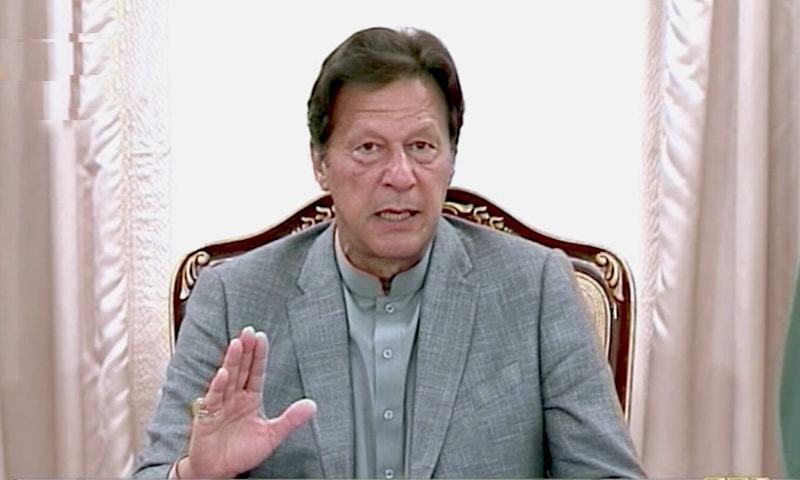'Will not abandon people of Karachi in their time of crisis,' says PM Imran

As an unprecedented monsoon spell continued to batter Karachi on Thursday, Prime Minister Imran Khan said that his government would "not abandon" the city's people "in their time of crisis".
The premier said that the federal government was "fully cognisant" of the devastation brought about by the rainfall, that so far has claimed dozens of lives in Karachi alone.
"My government is fully cognisant of the suffering of our people in the wake of the heavy rains, especially the people of Karachi," he said via tweets.
"I am personally monitoring the relief and rescue operations, and am in constant contact with National Disaster Management Authority (NDMA) chairman and Sindh governor for regular updates."
"Have directed NDMA chairman to immediately not only rescue stranded people, but also provide emergency medical assistance, food and shelter to all those in need. I have also asked NDMA chairman to ensure restoration of utilities on an emergency basis," added the prime minister.
"We will be announcing a plan for a permanent solution to the problems caused by floods by cleaning of nullahs, fixing of the sewage system and resolving the huge challenge of water supply to the people of Karachi."
The current monsoon spell in Sindh has once again exposed the poor infrastructure in the metropolis where several areas have been submerged by rainwater, which has yet to be drained. The flooding damaged vehicles and property and resulted in the deaths of a number of people.
Earlier this month, NDMA — a federal agency which is designed to move in and launch operations when disasters strike — was tasked by the prime minister to clean Karachi’s storm drains.
Editorial: The state this megacity is in is no less than a man-made disaster
A statement issued by the NDMA said that three major nullahs — Gujjar, Korangi and Mowach Goth drains — were cleaned through consistent operation conducted in collaboration with the Frontier Works Organisation (FWO), which led the work to desilt the mega structures.
The cleaning of the drains also gave an opportunity to the critics of the Pakistan Peoples Party for its performance over the past 12 years ruling Sindh.
Pakistan Tehreek-i-Insaf central vice president and leader of the parliamentary party in Sindh Assembly Haleem Adil Sheikh questioned the performance and ‘political will’ of the PPP government and said that the political party had failed to do the job in 12 years which “the NDMA has done in five days”.
“The NDMA has given the task to the FWO for cleaning dirt and sludge from the three main rainwater drains, which has been almost 95pc completed in five days,” he said in a statement.













































